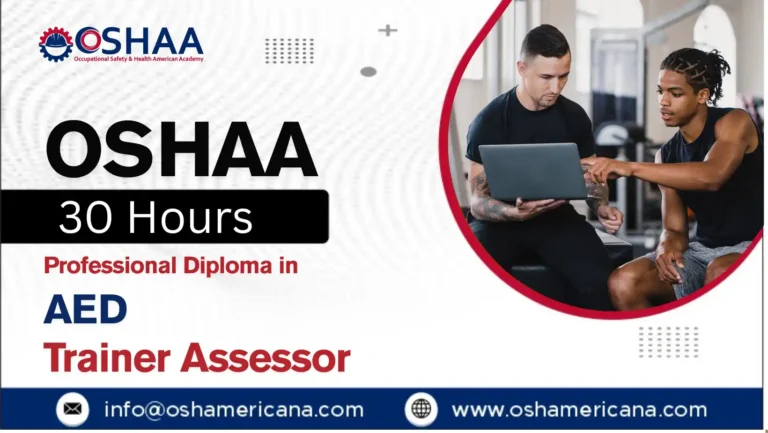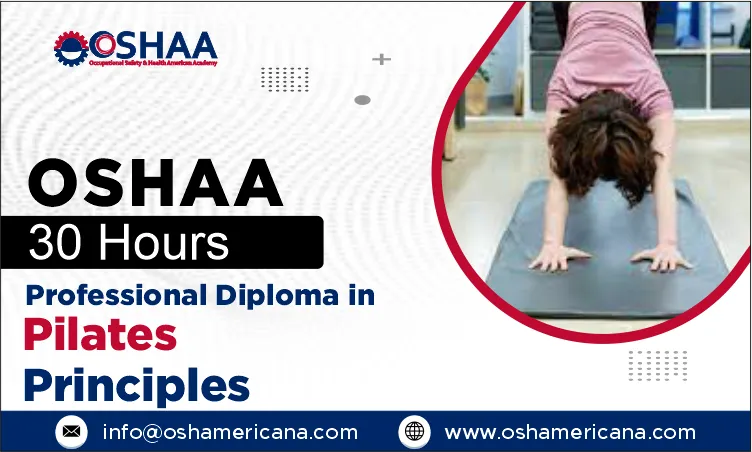Transform Your Career with Auditor Train the Trainer Certification
The OSHAA ISO Lead Auditor Train the Trainer course is a globally recognized program that combines advanced auditing expertise with professional training and leadership skills. Designed for auditors, compliance officers, quality professionals, and trainers, this course equips participants to lead ISO audits with authority while also teaching others to implement and sustain ISO standards across diverse industries.
Participants gain in-depth knowledge of ISO frameworks, including risk-based auditing, evidence evaluation, compliance assessment, and audit reporting. They learn to plan, conduct, and manage audits efficiently, ensuring accurate, objective, and actionable results that support organizational compliance and performance.
A key focus of the program is training excellence. Learners develop communication, presentation, and instructional design skills, enabling them to deliver engaging, results-driven ISO training sessions. The course also emphasizes integrating OSHA-related safety standards and international compliance requirements, ensuring that audits and training programs are technically accurate, ethical, and globally relevant.
Graduates enhance their professional credibility, access global career opportunities, and gain the skills to mentor others, foster continuous improvement, and promote a culture of compliance, safety, and operational excellence. This program empowers professionals to become leaders in auditing, training, and organizational compliance worldwide.
OSHAA ISO Lead Auditor Train the Trainer
To enroll in the OSHAA ISO Lead Auditor Train the Trainer, learners are expected to meet the following criteria:
- Age Requirement: Applicants must be at least 18 years old to participate in the OSHAA ISO Lead Auditor Train the Trainer course. This ensures that learners have the maturity, responsibility, and professional outlook necessary to succeed in advanced auditing and training roles.
- Educational Background: A minimum of a high school diploma or equivalent is recommended for enrollment in the OSHAA ISO Lead Auditor Train the Trainer program. While this foundation enables learners to grasp core auditing and compliance concepts, higher education in business, quality management, occupational safety, or related fields offers a distinct advantage for those aiming to take on leadership positions in ISO auditing and training.
- Work Experience: Prior auditing or compliance-related work experience is highly recommended for the OSHAA ISO Lead Auditor Train the Trainer. While not always mandatory, such professional experience helps participants apply auditing frameworks more effectively and enhances their ability to design and deliver impactful training programs based on real-world practices.
- English Proficiency: To succeed in the OSHAA ISO Lead Auditor Train the Trainer course, learners must be able to read, write, and speak English fluently.
Study Units
Learning Outcomes
The Learning Outcomes of the OSHAA ISO Lead Auditor Train the Trainer course are designed to provide participants with the advanced auditing expertise, compliance knowledge, and leadership skills required to become highly effective trainers in ISO auditing. This course equips learners not only with technical competencies but also with the instructional and professional abilities to train others, ensuring compliance, quality assurance, and continuous improvement in organizations worldwide.
Introduction to ISO Standards and Auditing
- Develop a thorough understanding of ISO standards, their global importance, and their role in organizational success.
- Gain the ability to explain auditing principles and processes in alignment with international compliance requirements.
- Learn to connect ISO standards with organizational performance, safety, and regulatory obligations.
Advanced Auditing Techniques
- Acquire in-depth knowledge of advanced auditing tools, frameworks, and methodologies.
- Learn how to plan, conduct, and report on audits with accuracy, consistency, and professionalism.
- Strengthen analytical skills to identify gaps, evaluate compliance, and recommend corrective actions.
Training Methodologies and Adult Learning Principles
- Understand adult learning theories and how they apply to professional training environments.
- Learn to adapt training approaches to accommodate diverse learning styles and participant needs.
- Gain practical skills to design training sessions that are interactive, engaging, and impactful.
Developing Effective Training Materials
- Master the ability to create clear, well-structured, and compliance-focused training resources.
- Learn to use visual aids, case studies, and real-world examples to enhance learner comprehension.
- Develop training content that meets both ISO standards and organizational requirements.
Communication and Facilitation Skills
- Strengthen communication techniques for delivering complex ISO auditing concepts with clarity.
- Gain facilitation skills that encourage participation, dialogue, and collaboration in training sessions.
- Build confidence in engaging diverse groups while maintaining authority as a trainer.
Managing and Evaluating Training Programs
- Learn to design, implement, and manage training programs that align with organizational goals.
- Acquire evaluation tools and methods to measure the effectiveness of training delivery.
- Develop continuous improvement strategies to enhance the quality and impact of future programs.
Ethics and Professionalism in Auditing and Training
- Understand the ethical responsibilities of auditors and trainers in maintaining integrity and credibility.
- Learn to model professional behavior that upholds trust and accountability in training environments.
- Gain insight into balancing organizational interests with compliance and ethical obligations.
Emerging Trends and Future Developments
- Explore the latest developments in ISO standards, auditing practices, and compliance frameworks.
- Learn how to adapt training programs to address emerging global challenges in quality and safety.
- Develop foresight to prepare organizations for future regulatory changes and industry shifts.
By completing the OSHAA ISO Lead Auditor Train the Trainer course, participants will be fully equipped to lead ISO auditing initiatives, design and deliver impactful training programs, and drive compliance excellence within their organizations. This program empowers learners to foster strong safety cultures, strengthen organizational accountability, and take on leadership roles in advancing international standards and workplace compliance worldwide.
The OSHAA ISO Lead Auditor Train the Trainer course provides a wide range of benefits that empower professionals to advance their careers, strengthen organizational compliance, and enhance overall workplace performance. This course is highly relevant for auditors, trainers, consultants, and organizational leaders who aim to align with international ISO standards while developing strong training and leadership competencies. With a focus on global compliance, professional development, and the advancement of training skills, the OSHAA ISO Lead Auditor Train the Trainer course equips participants with the expertise needed to make a lasting impact on organizations worldwide.
- Comprehensive Knowledge of ISO Standards – Understand ISO standards and auditing processes to implement global best practices.
- Advanced Auditing Skills – Learn advanced auditing techniques to plan, conduct, and report audits effectively and consistently.
- Regulatory Compliance and Legal Protection – Ensure organizational compliance with ISO frameworks, reducing legal and financial risks.
- Workplace Safety and Risk Reduction – Identify and mitigate workplace risks through audits and training to promote a safe environment.
- Professional Development and Career Growth – Gain internationally recognized certification, enhancing career opportunities in auditing and training.
- Enhanced Training and Facilitation Skills – Learn to design, deliver, and evaluate engaging training sessions for diverse learners.
- Improved Leadership and Communication Abilities – Develop communication, leadership, and facilitation skills to drive compliance initiatives.
- Operational Efficiency and Cost Savings – Streamline auditing processes, reduce external consultancy costs, and improve efficiency.
- Global Recognition and Applicability – Earn a certification recognized internationally, valuable in multinational organizations and global markets.
- Worker Well-being and Productivity – Promote employee well-being, morale, and productivity through effective auditing and training.
- Emergency Preparedness and Risk Management – Prepare organizations for emergencies with proactive risk identification and management.
- Continuous Improvement and Innovation – Foster a culture of continuous improvement and adapt to emerging compliance trends.
- Confidence in Training Delivery – Gain confidence to deliver credible, engaging, and results-driven training sessions.
- Strengthened Ethical and Professional Standards – Uphold high ethical standards in auditing and training, building trust and integrity.
- Strategic Advantage for Organizations – Develop in-house experts who drive compliance, training, and long-term organizational success.
Completing the OSHAA ISO Lead Auditor Train the Trainer course provides participants with unmatched professional growth while delivering significant value to organizations through compliance, safety, and operational excellence. This program positions learners as leaders who can inspire, educate, and implement international standards, ensuring long-term organizational resilience and success.
The OSHAA ISO Lead Auditor Train the Trainer course is designed for professionals and organizations committed to strengthening their compliance systems, advancing workplace safety, and enhancing professional training capacity. This course is relevant to auditors, managers, educators, consultants, and industry leaders who aim to develop expertise in ISO standards while acquiring the ability to train others effectively.
- Safety managers ensuring organizational systems comply with ISO and international safety standards
- Expand auditing expertise through the OSHAA ISO Lead Auditor Train the Trainer course
- Develop advanced training delivery skills for OSHA and safety programs
- Implement in-house training to maintain compliance and operational efficiency
- Promote workplace safety culture and continuous compliance
- Operations supervisors overseeing daily activities while ensuring ISO and safety compliance
- Learn auditing procedures and integrate compliance into operational workflows
- Strengthen communication and leadership skills to guide teams
- Deliver targeted OSHA training sessions to reduce risks
- Support consistent workplace safety standards
- HSE officers responsible for health, safety, and environmental compliance in high-risk sectors
- Gain advanced auditing knowledge and trainer capabilities
- Learn hazard recognition, risk management, and compliance reporting aligned with OSHA
- Deliver effective safety compliance training to reduce incidents
- Promote a strong workplace safety culture
- Quality assurance professionals maintaining organizational quality management systems
- Acquire advanced auditing and training skills to improve compliance and quality performance
- Train staff in ISO auditing techniques to ensure consistency and accuracy
- Align safety compliance with broader organizational quality objectives
- Increase professional value within organizations
- Corporate trainers and consultants providing ISO and OSHA compliance training and advisory
- Learn updated adult learning and training methodologies
- Design engaging and effective compliance training programs
- Expand professional credibility and service offerings in global safety markets
- Support organizations in achieving workplace safety and compliance goals
The OSHAA ISO Lead Auditor Train the Trainer course equips professionals with auditing expertise, training skills, and leadership abilities to strengthen OSHA compliance, improve operational performance, and foster a culture of continuous workplace safety and improvement.







